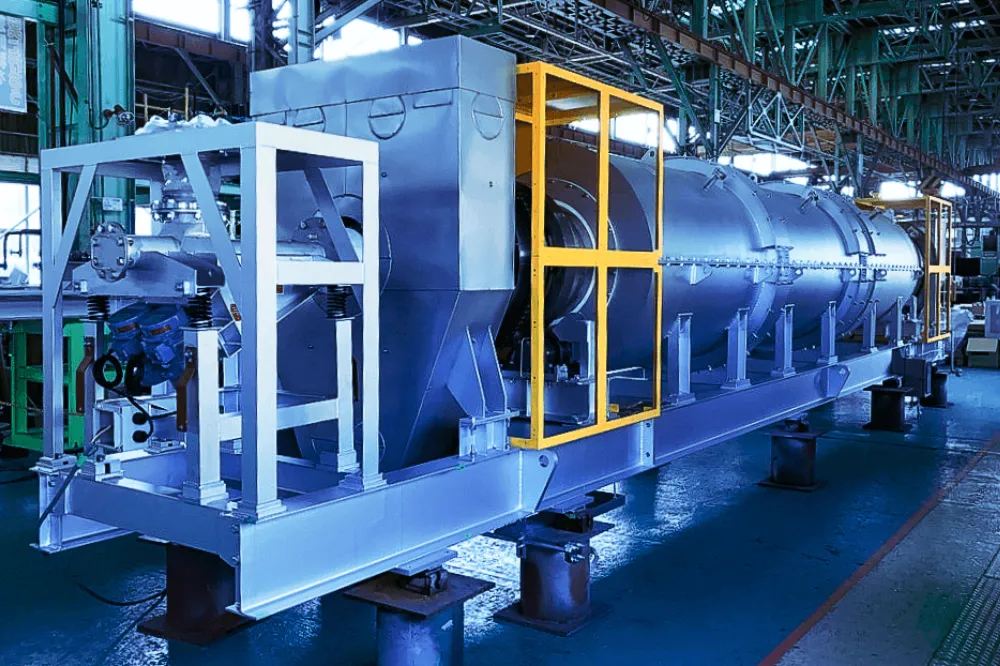
A rotary kiln is a heating furnace designed to uniformly heat process materials within a rotating cylindrical chamber. The kiln typically has a slight incline and heats materials as it rotates slowly. Tanabe’s rotary kilns accommodate a broad range of processes across a wide temperature spectrum, from 200°C to 2500°C.
Tanabe offers two main types of rotary kilns: batch and continuous. In a batch kiln, a set amount of material is processed at once; the kiln is stopped and unloaded after each batch. This method suits relatively small-scale production. In contrast, the continuous kiln maintains a steady feed of material that moves from one end of the kiln to the other during processing. This continuous method offers high production capacity, promoting process stability and consistency.
Tanabe’s rotary kilns support two heating methods: electric heater and gas burner. The electric heater method provides easy and uniform temperature control, capable of achieving high temperatures. Meanwhile, the gas burner method is energy-efficient, utilizing heat from the processed materials. Applications vary by temperature range, from drying LiB cathode materials (up to 200°C) to firing carbon materials (up to 2500°C).
Tanabe’s rotary kilns offer customizable features, such as heater designs that encircle the cylinder for even heat distribution, sealing structures that regulate positive and negative pressure, and contamination prevention using special alloys. Additional options include air-cooling mechanisms and high-sealing structures.
In addition to the kiln itself, Tanabe provides various auxiliary equipment, including exhaust gas treatment and cooling systems, delivering comprehensive engineering solutions tailored to customer needs. Tanabe also offers extensive after-sales services, such as regular maintenance, spare parts supply, and modification work, ensuring an optimal operational environment.
